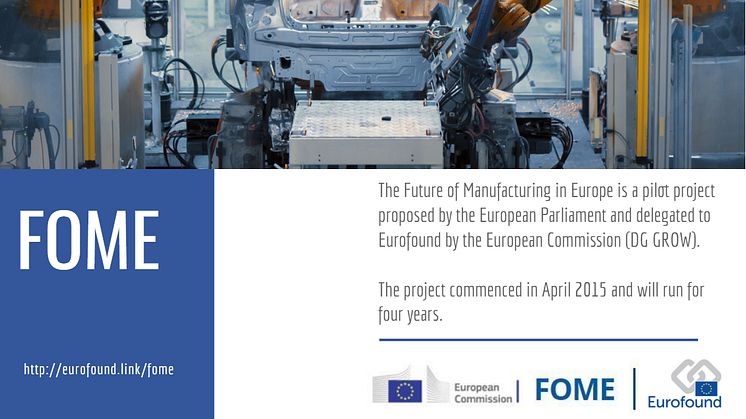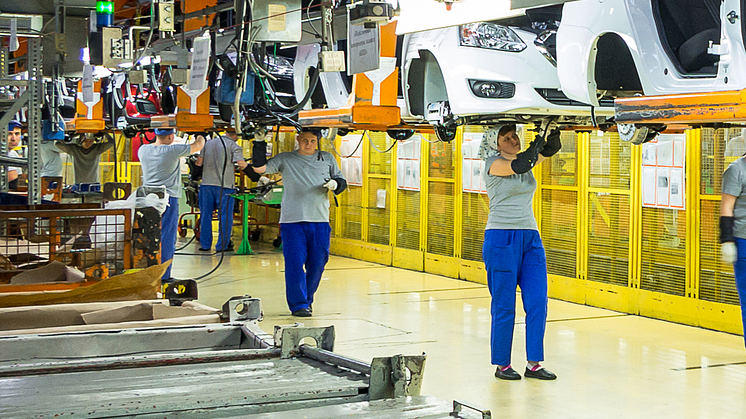
News -
The Future of Manufacturing in Europe
Competitiveness, research and development and a nation’s capacity for innovation all hinge on the performance of the manufacturing sector. The pilot project on the Future of Manufacturing in Europe (FOME) was launched in 2015 to explore the prospects for a globally competitive future in manufacturing and the associated implications for employment in terms of the number of jobs, workforce composition, skill needs and geographical dispersion throughout Europe. The project will run until 2019.
The newly-launched FOME website provides a gateway to further analysis including the European Reshoring Monitor, which summarises cases of reshoring since 2014, and maps existing industrial policy capacity in EU regions.
Find out more: FOME website


